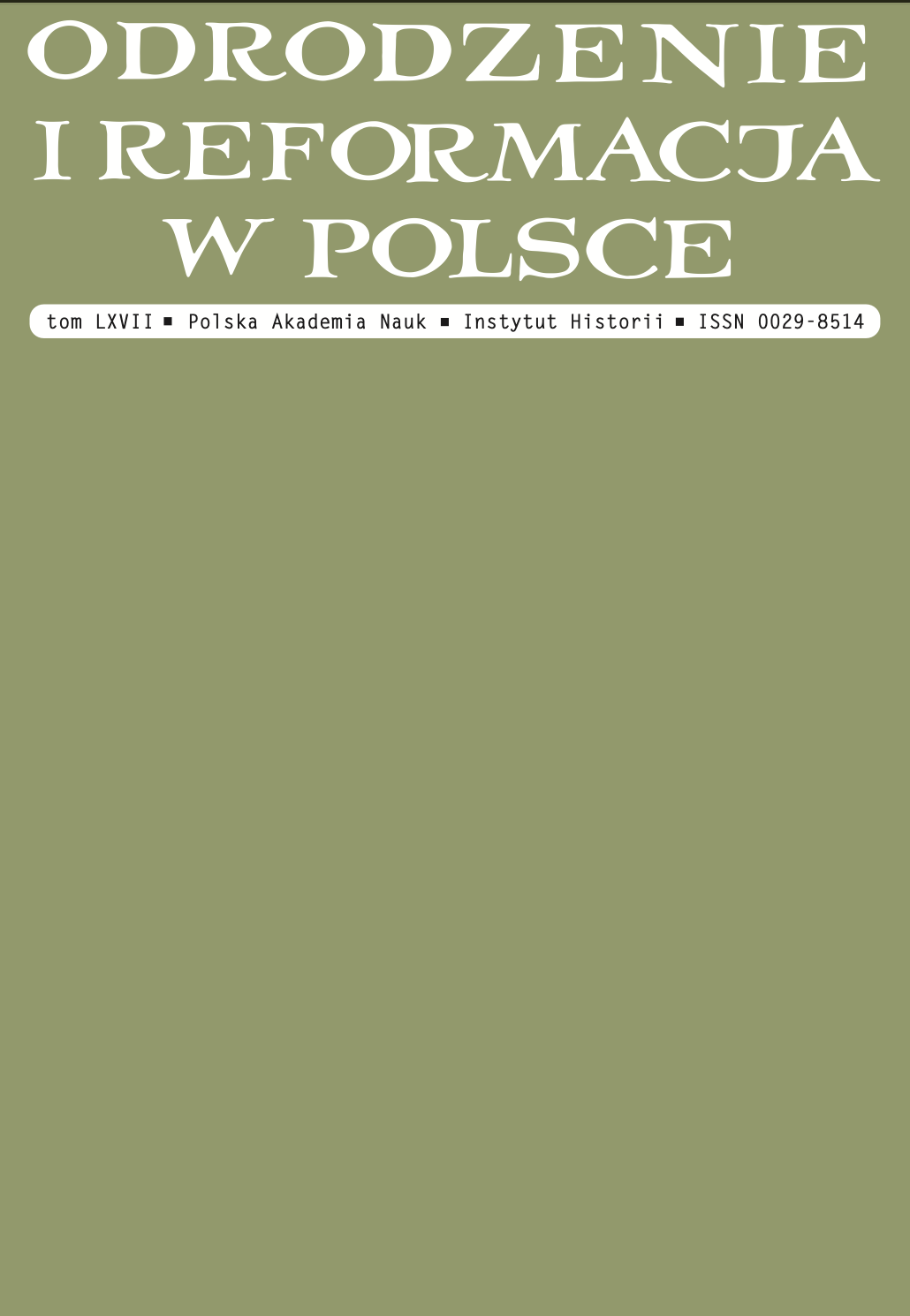Boccaccio czy Petrarka? O wybranych źródłach Facecyi polskich
Boccaccio or Petrarch?
On Selected Sources of the Polish Facetiae
Author(s): Anna GallewiczSubject(s): Translation Studies, Italian literature, Sociology of Literature
Published by: Instytut Historii im. Tadeusza Manteuffla Polskiej Akademii Nauk
Keywords: Facecye polskie; Giovanni Boccaccio; Francesco Petrarch; Renaissance; translation; motto;
Summary/Abstract: The article deals with four facetiae included in the anonymous collection Facecye polskie [Polish Facetiae], modelled – as it is believed – on the novel- las of Giovanni Boccaccio’s Decameron (I, 8; VI, 3; VI, 4; V, 9). Careful comparative analysis allows us to discover the translating strategies of the Polish author. It turns out that the changes made by the author of the Facecye polskie in the three tales (nos. 110, 111, 135) are superficial, while the modifications to facetia no. 138, regarded as a translation of the ninth novella of Day Six, result, in fact, in a completely different text, in which the enigmatic motto of the protagonist is replaced by a replica devoid of subtlety. The translation strategy, which differs from the earlier ones, may suggest that the source of facetia no. 138 is not the novella about Guido Cavalcanti, but perhaps a completely different text. A thorough comparative study shows that facetia no. 138 is closer to anecdote II, 60 found in the Rerum memorandarum libri by Petrarch, as well as to its sixteenth-century German translations than to novella VI, 9. Modifications of the Latin orig- inal, which we note in the German translations and the Polish version of the tale, do not, however, allow one to unequivocally state that the author of Facecye polskie may have been inspired by German-language editions of Petrarch’s anecdote, but they do not rule it out.
Journal: Odrodzenie i Reformacja w Polsce
- Issue Year: 67/2023
- Issue No: 1
- Page Range: 33-58
- Page Count: 26
- Language: Polish

